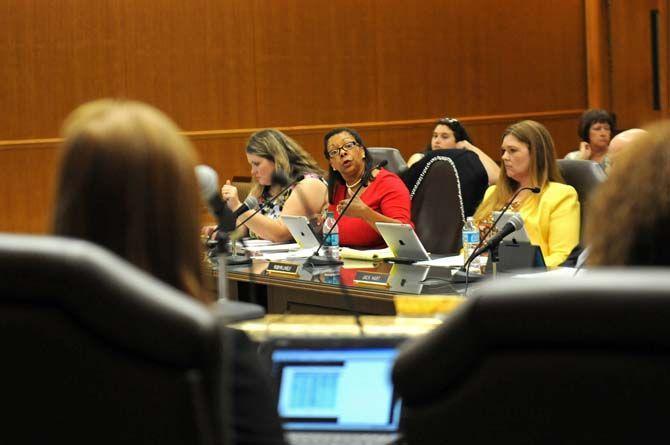On Tuesday, the Louisiana Office of Student Financial Assistance released a more comprehensive report of a potential breakdown of students who would receive TOPS next year if the Legislature does not find the funding for nearly 80 percent of the program.
The data was requested by Rep. Larry Bagley, R-Stonewall, at a Feb. 15 meeting of the Joint Legislative Committee on the Budget, following testimony from LOSFA director Sujuan Boutte and higher education leaders on the current state of affairs for education and scholarship funding.
If legislators don’t find roughly $200 million for TOPS in the next fiscal year, beginning June 30, more than 37,000 of the current 46,155 students who receive the scholarship would no longer qualify.
The qualifying ACT score would be raised to 28, with some of those who score a 28 still not qualifying if their “expected family contribution,” a formula used to determine how much money a student’s family can contribute to their college costs, is too high.
On Feb. 17, Boutte reiterated to the board that oversees TOPS that students should keep working hard to qualify for their scholarships, as legislators are also working hard to find the funding for the program.
But under the worst-case scenario, in which only $60 million would be allocated to the program from a protected fund, about 1,000 students with an EFC of zero to $999 per year could still claim TOPS. Nearly 3,000 students with an EFC of more than $30,000 would still receive TOPS.
The vast majority of those who would still qualify earned a 28 to 31 on the ACT. A smaller portion would have earned above a 31.
LOSFA and higher education leaders drew the ire of Republicans on budget and education committees over the past few weeks for what they have deemed “scare tactics” — talks of closing schools and ending scholarship programs. But higher education officials have insisted even under the “best case scenario” for budget cuts, colleges and universities will be hurt.
“The best case scenario is $70 million [in cuts],” said Commissioner of Higher Education Joseph Rallo at a Monday Board of Regents meeting. “I don’t think all of our institutions can absorb that.”
And if tax increases aren’t enacted, the Edwards administration has warned of more than $200 million in cuts to higher education, which does not enjoy the same constitutional or statutory funding protection as other state programs.
Facing a more than $2 billion shortfall next year, schools face similar cuts if lawmakers cannot find a middle ground to bridge the massive budget gaps.
“We could become private,” Rallo joked.
LOSFA releases report on TOPS funding
By Sam Karlin
February 23, 2016
Louisiana Office of Student Financial Assistance Executive Director, Sujuan Boutte, explains the budget issues and requirement changes for the TOPS scholarship on Thursday, Aug. 20, 2015, in Baton Rouge.





